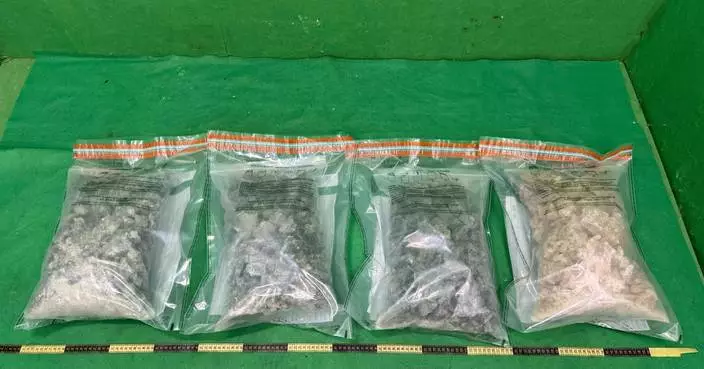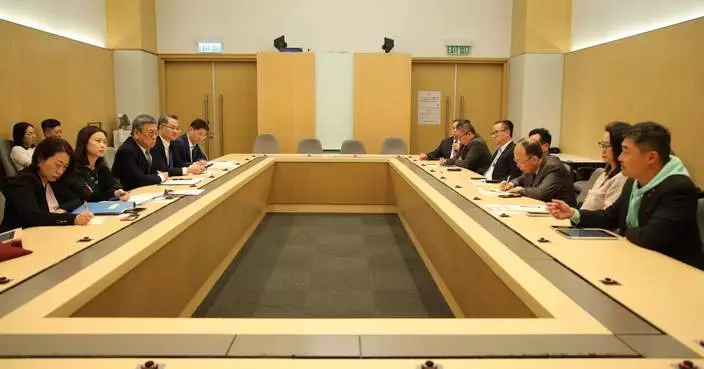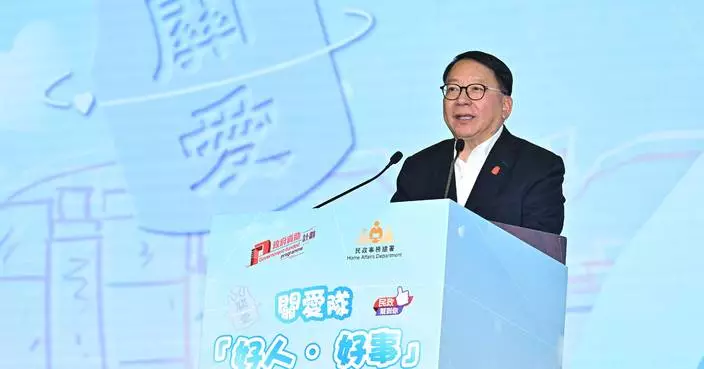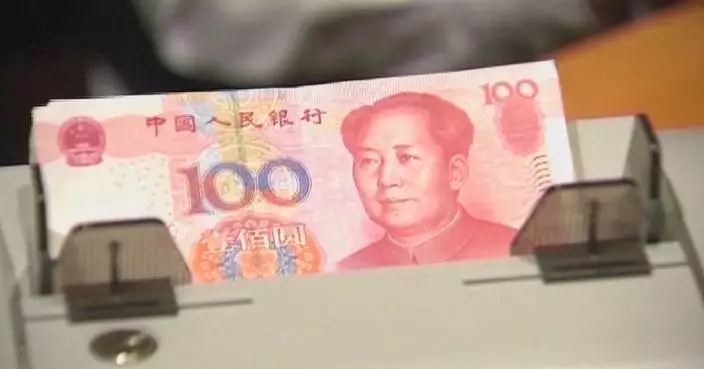Opening remarks by SED at LegCo Finance Committee special meeting
Following is the English translation of the opening remarks by the Secretary for Education, Dr Choi Yuk-lin, at the special meeting of the Legislative Council Finance Committee today (April 7):
Chairman,
Education is the key to nurturing talent. The Government attaches great importance to education and has all been investing heavily in education. The Government's expenditure on education is $112.4 billion in 2025-26, accounting for about 13.7 per cent of the total government expenditure. It includes $102.9billion of recurrent education expenditure, around 17.5 per cent of the total government recurrent expenditure, taking up a significant share of the overall government expenditure. In line with the strategy of invigorating the country through science and education, we remain committed to education, striving to promote high-quality education and develop Hong Kong into an international hub for high-calibre talents.
To enhance the quality of education, we will continue to implement new measures in 2025-26 to create new impetus for high-quality development of Hong Kong's economy. The new measures include –
To support post-secondary, and vocational and professional education and training, we will launch a new round of the Research Matching Grant Scheme totalling $1.5 billion to attract more organisations to support research endeavours of institutions, increase the quota of the Hong Kong PhD Fellowship Scheme to 400places per year, set up the Hong Kong Future Talents Scholarship Scheme for Advanced Studies to offer scholarships to up to 1 200 local students pursuing designated taught postgraduate programmes each academic year, and endeavour to develop Hong Kong into an international post-secondary education hub and to build the "Study in Hong Kong" brand.
To support the development of the self-financing sector, we have introduced a bill to amend the Post Secondary Colleges Ordinance (Cap. 320) into the Legislative Council for scrutiny, with a view to further enhancing the governance and competitiveness of self-financing post-secondary institutions. At the same time, we will gradually increase the admission quota for Mainland, Macao and Taiwan students for self-financing post-secondary institutions with the approval to admit Mainland students to degree programmes to 40 per cent, and to implement the new round of the Land Grant Scheme and the Start-up Loan Scheme, so as to promote the accelerated expansion of capacity and enhancement of quality of the self-financing post-secondary education sector.
For primary and secondary education, we will continue to enhance the quality of teaching, promote national education, national security education and patriotic education, adopting all-round, comprehensive, cross-key stage and interdisciplinary approaches to support schools to integrate national education into daily learning and teaching and strengthen students' affection for and sense of belonging to the country. At the same time, funds are earmarked under the Language Fund for establishing two grants to enhance the effective use of English and Putonghua among students. Additionally, the "Pilot Scheme on Other Languages for Junior Secondary Students", supported by the Quality Education Fund, will support junior secondary students to learn other languages, further harnessing the distinctive advantages of enjoying strong support of the Motherland and being closely connected to the world. We have also launched the "AI for Science Education" Funding Programme to promote pedagogical innovation and the use of AI (Artificial Intelligence)-assisted teaching in Junior Secondary Science.
In order to foster mental health of students, teachers and parents in a more holistic manner, we have launched the 4Rs Mental Health Charter in 2024, extending the Three-Tier School‑based Emergency Mechanism and implementing enhanced measures with a view to strengthening the support of students with high risks. For special education, we will replace the Personal Care Worker Grant with the Personal Care Enhancement Grant for Boarders to provide flexibility to relevant special schools in providing personal care services for boarders.
To enhance the effective use of public resources, the Education Bureau (EDB) will optimise and consolidate the use of education resources as appropriate, without affecting the quality of education and the teaching profession, and streamline procedures to improve efficiency. The key measures to be implemented in the 2025-26 financial year include –
The recurrent funding of University Grants Committee (UGC)-funded universities and Vocational Training Council will be reduced by two per cent in each of the coming three academic and financial years respectively (in line with the Government's reduction in operating expenditure). In addition, UGC-funded universities will return a total of $4 billion of its General and Development Reserve Fund balance to the Government on a one-off basis. We believe that universities will make effective use of valuable public resources to preserve the quality and standard of teaching and research, and at the same time seize the opportunity of building our nation into a leading country in education and strive to develop Hong Kong into an international post-secondary education hub.
We will also adjust the general subvention for publicly-funded schools and kindergartens by about two per cent, consolidate some grants and adjust the disbursement arrangements. We will set up a task force to revamp and consolidate various grants to schools in innovative ways, such as disbursing grants to schools in the form of a block grant, so that schools may utilise the resources more flexibly based on their development needs and priorities.
In support of the Government's Productivity Enhancement Programme, we reduced our recurrent expenditure by one per cent (about $1 billion) and an additional $1.5billion (totalling $2.5 billion) in 2024-25. Such savings were wholly achieved by the EDB internally, with no reduction in funding/subvention to schools and subvented organisations (including UGC-funded universities), nor subsidies for students/parents. In the 2025-26 financial year, we will continue to support the Productivity Enhancement Programme by further reducing our recurrent expenditure by two per cent and an additional $4 billion at the same time (totalling $6.2billion). The EDB is determined to ride out the difficult times hand in hand with the education sector.
In line with the targeted poverty alleviation strategy of the current-term government and to enhance the effective use of public resources, we will adapt to evolving circumstances and abolish the non-means-tested $2,500 student grant from the 2025/26 school year. For students from families with financial difficulties, we will provide them with a safety net and appropriate assistance through various means/asset-tested financial assistance measures, including Kindergarten and Child Care Centre Fee Remission Scheme, Grant for School-related Expenses for Kindergarten Students, School Textbook Assistance Scheme, Student Travel Subsidy Scheme, Subsidy Scheme for Internet Access Charges, School-based After-school Learning and Support Programmes and Free Lunch at Schools etc., to ensure that all students have equal opportunities to receive quality education without being affected by financial difficulties.
In the coming year, we will continue to adopt an innovative approach to consolidate and optimise the use of education resources, and to enhance teaching effectiveness. Building on Hong Kong's unique status and advantages under "one country, two systems", we will pave way for accelerated education development from a holistic and long‑term perspective, and nurture our younger generation to become virtuous and knowledgeable lifelong learners who love the country and the city and are ready for future challenges and opportunities.
This is the end of my introduction. Thank you, Chairman.

















































